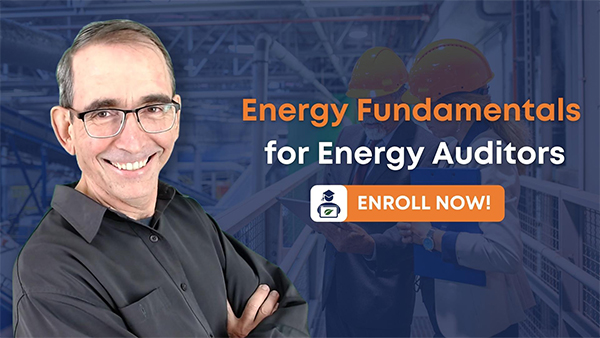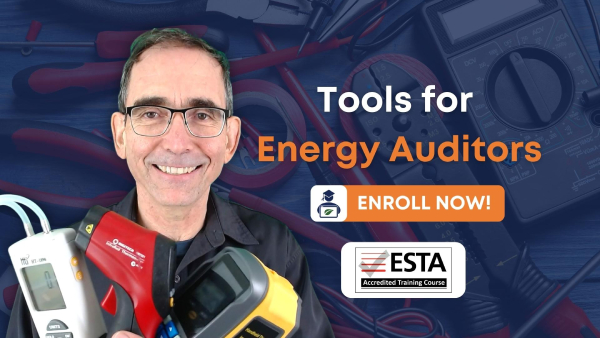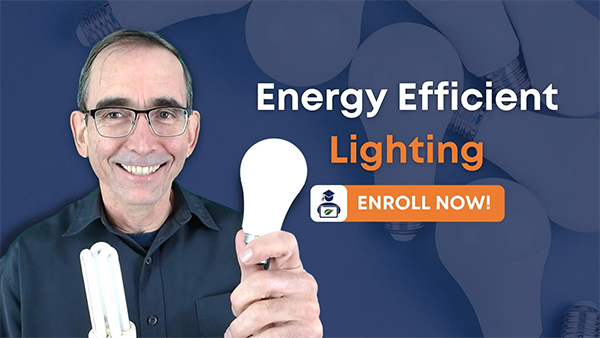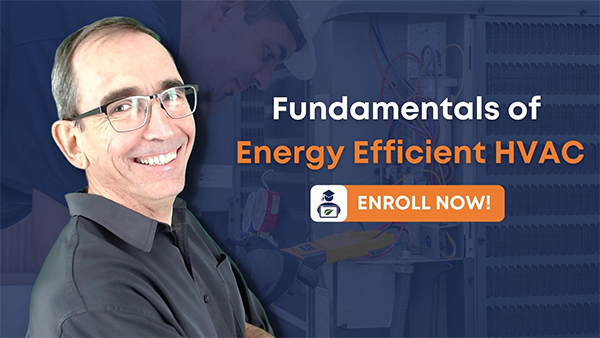46.99 $Add to cart
Buy NowPricing for 8 Training Courses + Provisional Certification
30-Day Money-Back Guarantee
Why Become an IGEA | Investment Grade Energy Auditor Certification
An individual certified as an Investment Grade Energy Auditor (IGEA) has gone through a comprehensive and rigorous training and assessment process. Energy audits undertaken by an IGEA can be trusted by facility owners and financial institutions to provide a sound business case for investments in energy efficiency upgrades.
This page:
- Describes what an Investment Grade Energy Audit is, along with its benefits.
- Outlines Investment Grade Auditor competencies
- Describes the comprehensive IGEA training
- Presents the IGEA assessment process
- Describes how to be certified as an IGEA
- Lists the benefits of the Sustainability Education Academy’s IGEA training and certification process
- Advises how to get started.
You can also download a description of the IGEA certification here.
What is an Investment Grade Energy Audit and Who Needs One
An energy audit is an assessment of a facility to identify how much energy it uses, where energy is used, and to present a business case for undertaking upgrades that reduce energy use. Typically, the whole site is assessed, with multiple savings opportunities identified across all areas of energy usage.
An Investment Grade (Energy) Audit (IGA) is one in which the business case in the audit is sufficiently comprehensive and robust that it can be trusted when making an investment decision. An IGA may also be known as Detailed Feasibility Study (DFS).
An IGA is central to an Energy Performance Contract (EPC). In an EPC, an Energy Services Contractor (ESCO) delivers guaranteed energy savings in return for a fixed investment. The ESCO will undertake an IGA or DFS, and use this as the basis of their guarantee, and to determine the investment requirement.
Benefits of being certified as an Investment Grade Energy Auditor
Being certified as an IGEA positions you as an expert, leading to a higher salary and contributing to a meaningful career.

Expert Level
Become an authority in your field, boosting your resume and unlocking new paths that lead to better pay and positions in both private and government.

High Salary
Enjoy a significantly higher salary or be able to conduct freelance energy audits with high pay, ensuring financial stability while making businesses more eco-friendly.

Meaningful Career
Be a core part of the sustainability movement to reduce the global carbon footprint while upholding the three pillars: economy, society, and the environment.
Reducing Investment Risk
An IGA performed of a commercial or industrial facility, and following a proven process, can be used to reduce investment risk.
A bank or finance corporation, looking to finance energy efficiency upgrades, would expect any energy audit undertaken to be of an investment grade standard.
Anyone wanting reasonable assurance that an energy audit provides a trustworthy business case that de-risks investments to reduce energy costs and greenhouse gas emissions can benefit from an investment grade energy audit undertaken by a proficient auditor.
Benefits to facility owners and financial institutions
An Investment Grade Energy Auditor (IGEA) goes through comprehensive and rigorous training and assessment. A IGEA is certified as having demonstrated the ability to deliver an energy audit that can be trusted by facility owners and financial institutions to deliver the expected financial savings and greenhouse gas abatement. This reduces risk, providing greater certainty of the outcome of energy efficiency upgrades. And ultimately this leads to increased investment in energy efficiency, which in turn leads to increased financial and carbon savings.
How are these benefits provided
Benefits are provided through comprehensive training and a robust assessment process that evaluate knowledge across multiple areas of competency.
Investment Grade Energy Auditor Competencies
The key competencies of an Investment Grade Energy Auditor are:
- Can assess an energy users’ approach to energy management within the facility being audited and advise on an appropriate scope of audit.
- Can identify energy sources and quantify annual energy usage, costs and energy related greenhouse gas emissions.
- Can develop an energy use breakdown and identify major energy uses.
- Can apply a systematic process to identify a comprehensive range of feasibly energy savings opportunities.
- Has knowledge of the energy usage characteristics and savings opportunities with systems and technologies in common use, including lighting, heating, ventilation, air-conditioning and domestic hot water.
- If auditing industrial facilities has knowledge of the energy usage characteristics and savings opportunities with electric motor, steam, refrigeration, and compressed air systems.
- Can quantify energy savings costs and benefits to a level of accuracy that is acceptable for investment purposes.
- Can create an energy audit report that clearly advises an energy user how much energy is used, where it is used, what the energy savings opportunities are and on what the energy users next steps should be.
The Comprehensive Investment Grade Energy Auditor Training
In pursuit of their certification and to be able to develop the necessary competencies a student aspiring to achieve IGEA certification completes two sets of training modules.
The first set of training modules is focussed on undertaking an energy audit. There are four modules in this set.
The second set of training modules is focussed on a technical understanding of common energy using technologies and systems. There are also four modules in this set.
Across the total of eight training modules there are a total of 177 lessons, which vary in duration from a couple of minutes up to fifteen minutes. The training is not passive, each student is required to respond to a minimum of 214 questions in order to be able to progress through the training.
Training Set One – Undertaking An Energy Audit
This is a series of four, online, on-demand modules and assessments, covering:
Training Set Two – Energy Using Technologies and Savings Opportunities
This is a series of four, online, on-demand modules and assessments, covering:
A Robust Blended Assessment Process

The IGEA certification is based on a blended assessment process that tests both for knowledge with questions – and provides feedback on student responses to those questions, whilst also requiring an actual energy audit of a real site the examinee is familiar with. Such an approach assesses both underlying knowledge and the skills needed to actually undertake an Investment Grade Energy Audit.
Additionally, certification entails attending an interview, and the submitted energy audit is accompanied with a reference check.
The three steps to full certification are:
- Complete the IGEA training and pass the assessments in each training module.
- Attend an interview; pass the interview and obtain Investment Grade Energy Auditor – Provisional (IGEAprov) certification.
- Complete and submit an Investment Grade Energy Audit; pass the assessment of the audit and the referee check and obtain full Investment Grade Energy Auditor (IGEA) certification.
Assessments in the IGEA training
The eight individual training modules that need to be completed before undertaking and submitting the IGA have questions throughout them, which students must answer in order to progress, and with feedback provided immediately to students. The testing throughout the eight individual modules is not, however, limited to just multiple-choice questions. There are a variety of other question types, including free text entry for numerical questions. In this case there is no element of chance, you either enter the correct number or not.
In fact, there are many more assessment questions across these eight modules than there are in other energy efficiency certifications based on a high-pressure exam environment after an intense training program.
Interview
The interview can be attended after successfully passing all modules in the IGEA training and providing certificates of competency for each module.
In the interview, conducted live (virtually), the candidate needs to be able to demonstrate the ability to be able to quickly recall areas of knowledge associated with each of the key competencies.
Candidates are provided written feedback after the interview.
Energy audit submission and referee check
The assessment of the energy audit submitted by the student, and accompanying referee check, are used to assess that the auditor has the ability to be able to undertake an energy audit and engage with the energy user. It also assesses that the audit satisfactorily identifies and quantifies all energy sources and where energy is used, in addition to identifying a comprehensive set of savings opportunities that have costs and benefits estimated to an investment grade level of accuracy.
Written feedback is provided to the candidate.
How to be certified as an Investment Grade Energy Auditor
Candidates wishing to achieve the IGEA certification need to
- Complete all eight modules in the IGEA training and pass the assessments in each module.
- Attend an interview; pass the interview and obtain Investment Grade Energy Auditor – Provisional (IGEAProv) certification.
- Complete and submit an Investment Grade Energy Audit; pass the assessment of the audit and the referee check and obtain full Investment Grade Energy Auditor (IGEA) certification.

Documentation requirements
Candidates need to provide proof of identification, and the investment grade audit when submitted needs to be submitted with evidence that the audit is the work of the candidate.
Timing
It takes around 4 to 7 months to become an IGEA, as tabled below.
| Component | Time required (if the IGEA certification is your full time focus) | Suggested duration for a student taking the course whilst also working full time |
| Four online, on demand training modules and assessments: undertaking an Energy Audit | 1 week | 6 weeks |
| Half day live session on Undertaking an Energy Audit* | 4 hours | 4 hours |
| Four online, on demand training modules and asessments: Energy Using Technologies | 1 week | 6 weeks |
| Half day live session on Energy Using Technologies* | 4 hours | 4 hours |
| Interview | 1 hour | 1 hour |
| Section 3 – Prepare and submit an investment grade Energy Audit | 3 – 6 weeks + 3 to 4 weeks for the audit to be assessed and undertake a referee check | 3 months + 3 to 4 weeks for the audit to be assessed and undertake a referee check |
| Overall time required to become an IGEA | 4 months | 7 months |
Our Investment Grade Energy Auditor Certification Will Get You There
Benefits of IGEA training and assessment to candidates
The world is crying out for more people with energy efficiency expertise. Yet it is not easy to get this expertise, and much of the certification associated with improving the energy efficiency of existing facilities is based on a weak assessment process that does not thoroughly establish competency. A key benefit is the robust assessment – you can’t pass until you’ve proven you can deliver an Investment Grade Energy Audit.
Other benefits of IGEA training and assessment include:
Already know it? Skip ahead and save time
Some candidates may already have considerable experience and knowledge. Whilst all eight training modules do need to be satisfactorily completed prior to submission of the IGA, modules can be satisfactorily completed by passing the assessments, without needing to complete all the lessons.
If a candidate jumps straight into an assessment without completing the proceeding lesson, and fails the assessment, the candidate can then review the lesson before retaking the assessment.
You don’t have to forget about your work to be certified
The Sustainability Education Academy certification can be completed as you have time available, at your own pace, with it’s on-line on-demand modules available 24/7.
Alternate “cram plus exam” certifications require students to set aside up to a week of their time to take the course and sit the exam. For many people, finding this time is not easy.
Not a high-pressure exam environment
Students going through the IGEA training and assessment aren’t assessed in a high pressure, limited time exam setting.
In a high pressure limited time exam setting you aren’t only being tested for your knowledge. You are also being tested on your “exam craft” skills, and ability to manage time in an exam setting. This is not a skill energy auditors should be assessed against!
Failure is not final
Many energy efficiency certifications delivered in a “cram plus exam” environment are expensive, and the results are final. Fail to pass the exam, and you’ve lost a lot of money – not to mention time away from work.
Across the eight training modules that comprise the IGEA certification, failure is not final. Fail an assessment, and:
- You are provided feedback on each wrong answer.
- You are free to take the assessment again, immediately, at no extra charge.
Questions are randomly drawn from a large pool of questions so as to not ask the same set of questions again. And providing feedback immediately will enhance learning and knowledge retention.
If you still don’t get the answers right you won’t pass, but will get additional feedback. By providing fast feedback and a “safe” learning environment, students can learn from their mistakes, and provided they do so, will be able to eventually pass a module.
Learning from our mistakes is one of the best ways to learn. With over 200 questions in the IGEA assessment you are sure to make some mistakes – but you’ll get expert feedback straight away – and thus learn.
Additionally you get notes from your assessor on the interview you attend and the investment grade energy audit you submit – notes which will help you recognize what you are good at, and where you can approve.
If you fail the interview or audit submission, you can pay the applicable fee and reapply for the interview and audit submission at any time. The feedback provided can be used to help ensure you don’t repeat your earlier mistakes.
Proof of certification
The certificate issued to a candidate has a QR code linking to a database on the Sustainability Education Site, proving its validity.
Additional benefits of enrolling through a training partner
When enrolling in the training through one of the Sustainability Education Academy’s exclusive training partners you are optionally (depending on the training partner) provided with two half-day face to face sessions, delivered using video-conferencing online.
Training partners deliver the IGEA over a seven month period to a batch of students.
The two face to face sessions enable engagement with other students and your instructor. The first session is on the process of undertaking an energy audit, and the second session on energy using technologies.
These sessions compliment the on-demand lessons, bringing to students the best of both on-demand self-paced training and live interaction with other students and the instructor.
How to get started?

Either purchase all courses in the series (including the individual course assessment and final assessment) and get 20% off;
Investment Grade Energy Auditor Certification
or enrol in the first module of the series:
Commissioning and Managing an Energy Audit.
474.24 $Add to cart
Buy NowPricing for 8 Training Courses + Provisional Certification
30-Day Money-Back Guarantee










